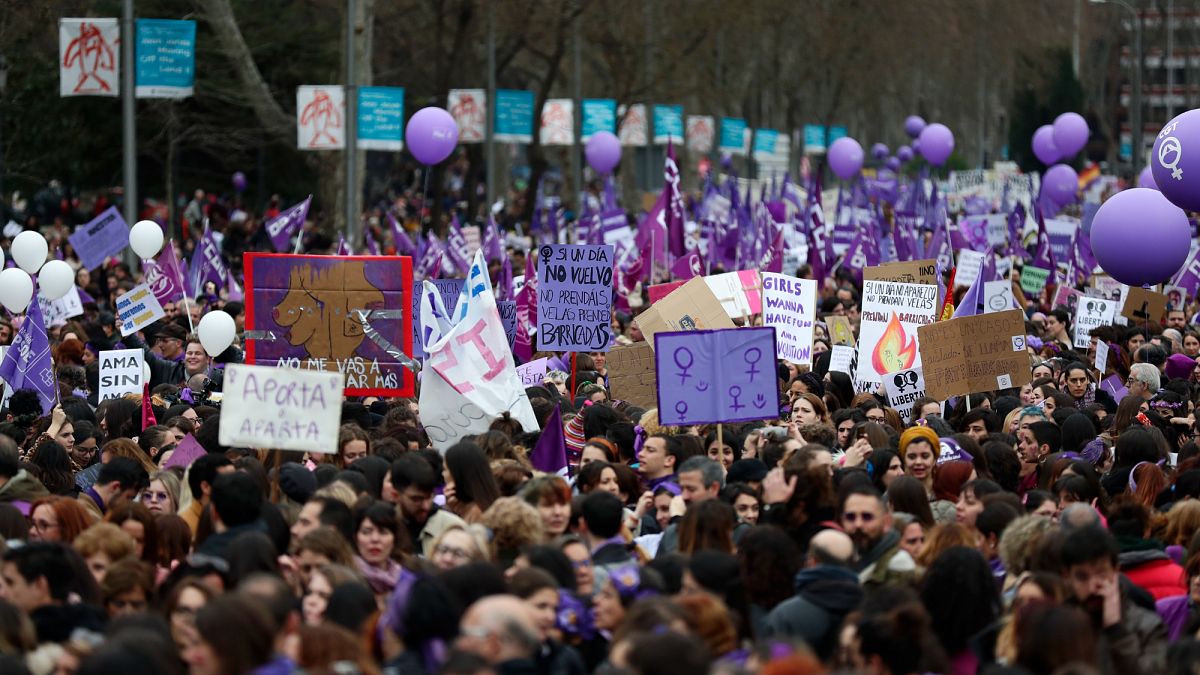Modern EU equality policies must also address the challenges faced by men and boys, particularly to counter polarisation and backlash against gender equality, Magnus Heunicke, Danish minister of Gender Equality, told Euronews.
“We must include men and boys in our gender equality efforts, not just as allies for women and girls’ rights and empowerment, but in their own right,” Heunicke said, adding that the bloc should increase efforts in areas where men and boys are overrepresented or face gender-specific difficulties, such as health, loneliness, or social exclusion.
The perception among some men that women’s rights threaten their own is a documented social phenomenon linked to economic anxieties and societal change—especially among younger generations.
“The rise of misogynistic influencers has led some people to mistakenly believe that equal rights for women means removing rights from men, (…) but I don’t believe that what we read online and watch on TV accurately reflects the situation on the ground,” MEP Maria Walsh (Ireland/European People’s Party) told Euronews.
A 2025 survey of more than 24,000 people across 30 countries found that 57% of Gen Z men and 56% of millennial men felt their country had “gone too far in promoting women’s equality”. This widening gender divide was also visible in the last EU elections, where 17.2% of men under 25 voted for a far-right party—nearly double the 9.5% of women in the same age group.
The anti-gender rhetoric has been echoed by far-right politicians, including members of the Patriots for Europe group, now the third-largest force in the European Parliament with 85 seats.
“Feminism has advanced so much in recent years that now men’s and fathers’ rights in family law, for example, have been forgotten or ignored,” MEP Anders Vistisen (Denmark/Patriots for Europe), who was the lead candidate for the now-extinct Identity and Democracy (ID) group.
Gender has emerged as a new political dividing line for young voters, similar to how class or geography shaped past generations’ choices, according to an analysis by the European Policy Centre (EPC), a Brussels-based think tank.
The EPC report found that young women are becoming increasingly progressive while young men lean more conservative—a divide that could strengthen the electoral weight of anti-feminist forces and put equality policies at risk if such parties gain power.
“When we work towards gender equality, we absolutely have to see the full picture. Otherwise, we only give fuel to the far-right narrative that tries to paint women’s rights as a threat to men,” MEP Abir Al-Sahlani (Sweden/Renew Europe) told Euronews. “The fight for gender equality must include everyone and fight for everyone.”
In 2024, Denmark launched its first-ever gender equality action plan for men and boys. It includes initiatives such as a campaign to raise awareness of sexual harassment among young people, support measures for vulnerable fathers, and an action plan addressing health, education, and family life challenges for men and boys.
“Young men in particular are vulnerable to suicide and poor mental health,” Walsh said. “We cannot ignore the forces within our society which disproportionally hurt our boys and young men – this must be recognised both in our conversations and in our policies.”
Men account for nearly 77% of deaths by suicide across the EU. They consistently have a higher early school leaving rate than women and are more likely to end up affected by substance abuse, crime, or homelessness.
Gender equality is not a “zero-sum game”, Heuniche argued, stressing that there are still many barriers for women and girls across the EU. “But of course, we must also look at the areas where men face challenges because of their gender (…) and we urge the EU Commission also to include this focus in their upcoming EU gender equality strategy,” he added.
EU Commission: “Men also benefit from gender equality”
The European Commission is preparing several new equality strategies, expected in the coming months, including initiatives on LGBTQ+ rights and anti-racism, which are also set to address gender disparities.
The flagship initiative will be the EU Gender Equality Strategy 2026–2030, building on the current 2020–2025 framework.
“Women and men, girls and boys must be able to live their lives to the fullest, according to their private and professional choices, free of stereotypical gender norms,” a Commission spokesperson told Euronews, adding that preparatory work for the new strategy is guided by this vision.
“Women do not make gains at the expense of men. On the contrary, men also benefit from gender equality, as gender stereotypes and inequalities are harmful to both women and men,” the spokesperson said.
However, the Commission has not yet clarified how the specific role of men and boys will be reflected in upcoming policies.
For now, gender disparities remain stark. Women across the EU work fewer hours than men, carry the majority of unpaid care and domestic work, and are overrepresented in lower-paid sectors such as healthcare, education, and social services. Men, by contrast, dominate higher-paying fields such as technology, engineering, and finance.
On average, women in the EU still earn 12% less than men, and the gender employment gap costs the EU an estimated €370 billion each year.
Read the full article here


